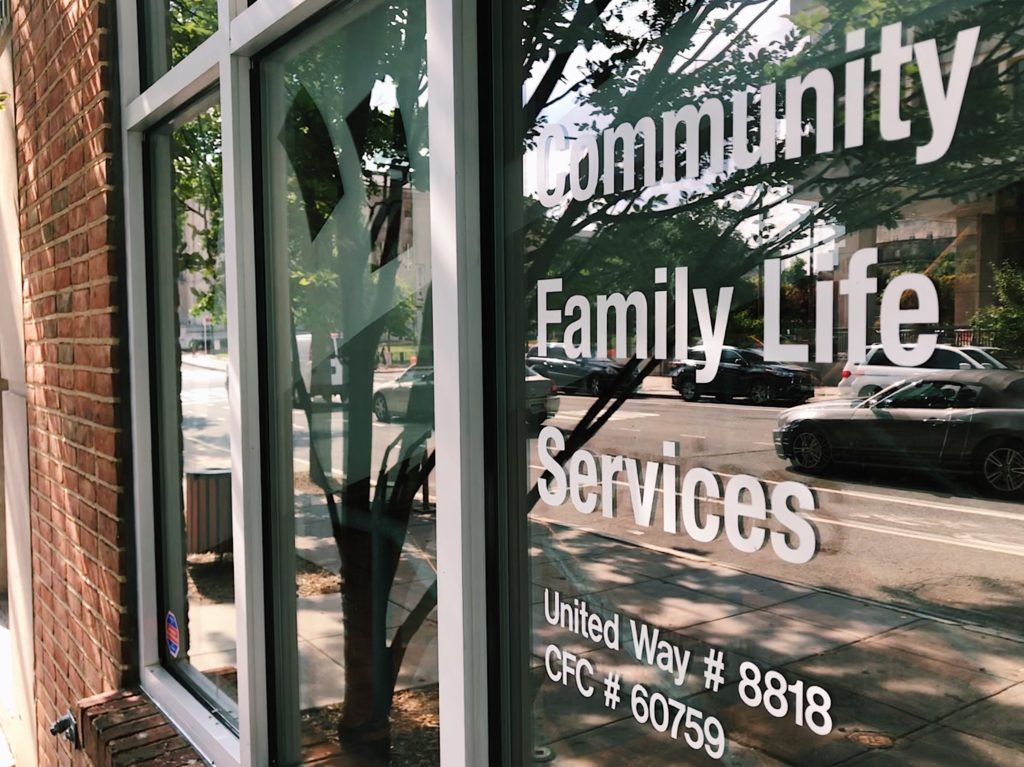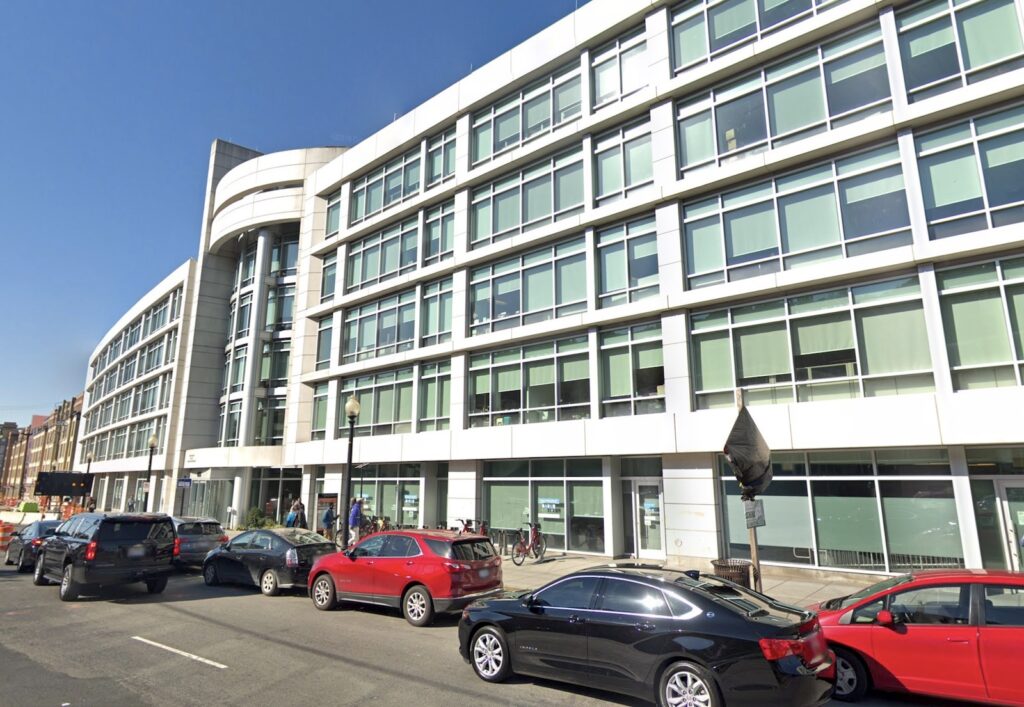Marijuana isn’t merely growing more acceptable in the eyes of the American public; it’s entered the luxury market, with the department store Barney’s advertising a “cannabis lifestyle” in their recently-opened luxury shop The High End. With marijuana recreationally legalized in eleven states and D.C., the way the drug is used has changed.
“You can talk about smoking a joint just like you can talk about having a drink,” said Ashley McSwain, executive director of Community Family Life Services. “Drinking is legal. There is no stigma associated with having a drink every now and then.”
Yet despite this shift, marijauana use is more permissible for some members of the population than it is for others.
McSwain works with returning citizens from the criminal justice system to aid in the transition to permanent self-sufficiency. Despite the benefits of decriminalizing marijuana, this formalized culture of acceptance has created some confusion for McSwain’s clients.
Rhonda Deskins, an employment specialist at Community Family Life Services, finds herself explaining to clients all the time that marijuana will work against them in the hiring process. She has seen people fired after testing positive for marijuana as well. Legalization has created a new barrier for her already high-need clients, she said, because they don’t expect to face these repercussions.
“[They may be] on probation. Some of them aren’t connected with their children,” Deskins said. “It creates problems even with reunification, trying to make sure you’re clean and sober and have a good home for your kids.”
Is change in the works?
Some private sector companies have changed their policies in states where recreational or medicinal use is now legal. According to Eric Janson, a partner in the Labor and Employment Department at Seyfarth Shaw LLP, these changes sometimes arise out of necessity to attract candidates. Pre-employment drug testing policy in particular has been affected, with some companies removing marijuana or THC from their drug testing panel completely, he said.
The state of Maine, for example, prohibits employers from taking adverse employment action based on a positive drug test for marijuana unless they can prove that the employee or applicant is under the influence while at work. By definition, this means that pre-employment testing is prohibited, Janson said.
Nationwide, in the past three to five years “both the laws on the books as well as the case law and the courts interpreting those laws have seemingly been trending pro-employee,” Janson said. He expects this trend to continue.
What are the true consequences for returning citizens?
Despite the trend Janson illustrated, business practices around marijuana and legal policies are not aligned across the board. And for the clients McSwain and Deskins work with, the consequences of being excluded from the job market due to the legal use of a drug can be much more severe.
“There is a freedom issue,” McSwain said. “That’s not the case for other populations.”
Though a positive test for marijuana is not automatically a probation violation under D.C. law, the standard terms of probation do include a job requirement. So if marijuana is preventing someone from obtaining employment, they can be in violation of their probation.
Though the federal system continues to operate differently due to the prohibition of marijuana under the Controlled Substances Act, the idea that individuals on parole or probation should not face repercussions for marijuana use is not new. A former probation commissioner in New York City testified at a hearing last year to encourage the state to eliminate marijuana use as a violation of parole or probation, even before legalization.
When people are going through re-entry, they are worried about childcare, food, housing, and other facets of the transition process, said Deskins. They might be facing a custody battle. Beyond the potential legal necessity of maintaining employment, holding a job is paramount for the particularly acute obstacles this population faces.
“I think that’s really the only option, is to take it off the testing in places where recreational is permitted,” Deskins said.
D.C. is unique for returning citizens due to the dichotomy of federal and city-level policies. The District doesn’t have it’s own federal prison system, so people convicted of felonies are diverted to the U.S. Bureau of Prisons and sent to institutions around the country, making re-entry more challenging. When searching for employment, the high concentration of federal jobs means marijuana will be legal in some settings and not in others.
[Read More: DC residents discuss the information gap engendered by inconsistent and discriminatory marijuana policy]
What does a zero-tolerance policy mean when you can test positive without being ‘under the influence?’
A client Deskins worked with got into an accident with a crane while working at a construction site. Deskins said that he was not under the influence at the time of the accident, but that when an incident occurs in the construction industry, they drug test first. And a positive test for marijuana is immediate grounds for dismissal.
“It’s kind of ironic, too, because we do serve re-entry populations,” Deskins said. “And the construction industry has been notorious for being really open to hiring returning citizens.”
Deskins said her client’s contract had a “no-tolerance” drug policy. He was let go, with no means to contest his termination.
The construction industry is dealing with serious liability, and even medicinal marijuana use can be a concern due to the presence of heavy machinery that can cause serious injury.
“I think that employers that I have seen, particularly in the construction industry, are looking at those potential liabilities and making assessments whether it is reasonable to allow this as a form of accommodation given the nature of their job and the essential functions of their job,” Janson said.
Insurance factors in as well. Insurance companies will not dictate employers’ drug testing policies, according to Bob Thompson, vice president of the staffing insurance company World Wide Specialty Programs. However, in the case of a lawsuit, an insurance company could potentially decline coverage for a claim if an employee is impaired, and employees can still sue for workers’ compensation. As Thompson put it, “the circumstances turn out to be dictating.”
What are people doing to reform marijuana policy?
Even in sectors that aren’t high-risk, employers still have discretion over whether or not to test for marijuana. Community Family Life Services doesn’t have a legal team, though this discretion makes it unlikely that there would be a legal basis for recourse. When a client is threatened with repercussions from a positive marijuana test, the most they can do is advocate for a retest at a later date.
“It’s heartbreaking to watch this policy impact,” McSwain said. “Our clients are looking for any kind of refuge that they can find. And smoking a joint, just like people who drink a drink now and again to take the edge off, is sort of what our clients have access to.”
McSwain and Deskins would like to see sweeping legalization at the federal level. U.S. Sen. Cory Booker, the New Jersey Democrat who is also running for president, sees ending the federal prohibition and reinvesting in those communities most affected by the war on drugs as the only way to achieve a just marijuana policy.
D.C. has yet to pass legislation protecting employees against discrimination for marijuana use, but At-large Councilmember Elissa Silverman announced a hearing on two bills being considered by her Committee on Labor and Workforce Development. She invites the public to attend.
“There has been growing interest among the public about this issue and the committee will take a closer look at it during the summer recess,” said Ashley Fox, Silverman’s communications and community outreach director.
A positive marijuana test would never be grounds for Community Family Life Services to deny service to someone, but it does have a “sober house” in its transitional housing program. Smoking isn’t allowed in the building and they do random drug tests, but when it comes to marijuana, McSwain doesn’t see the point in “stressing out over a rule that has no implications for anything.”
“I was just having this conversation with a staff person about their client who keeps testing positive for marijuana,” McSwain said. “And I’m saying, well, is she going to work? Is she paying her bills? … I’m thinking, leave that lady alone.”








